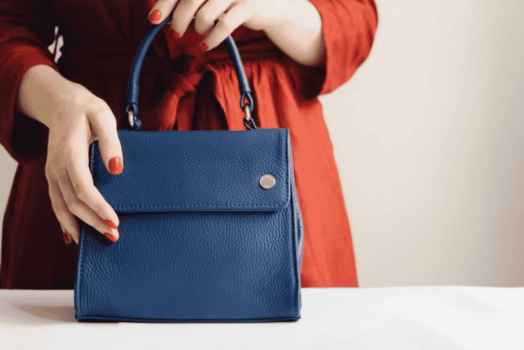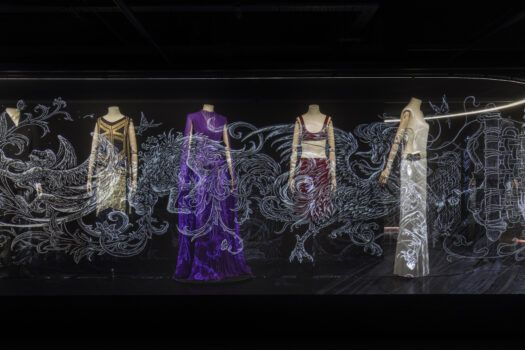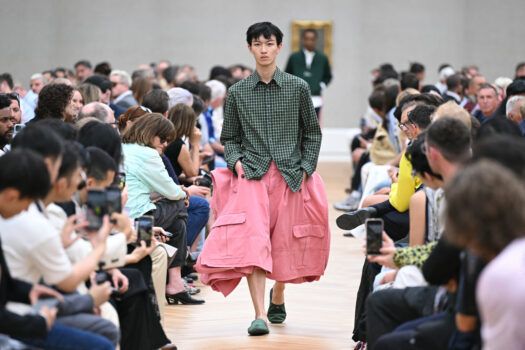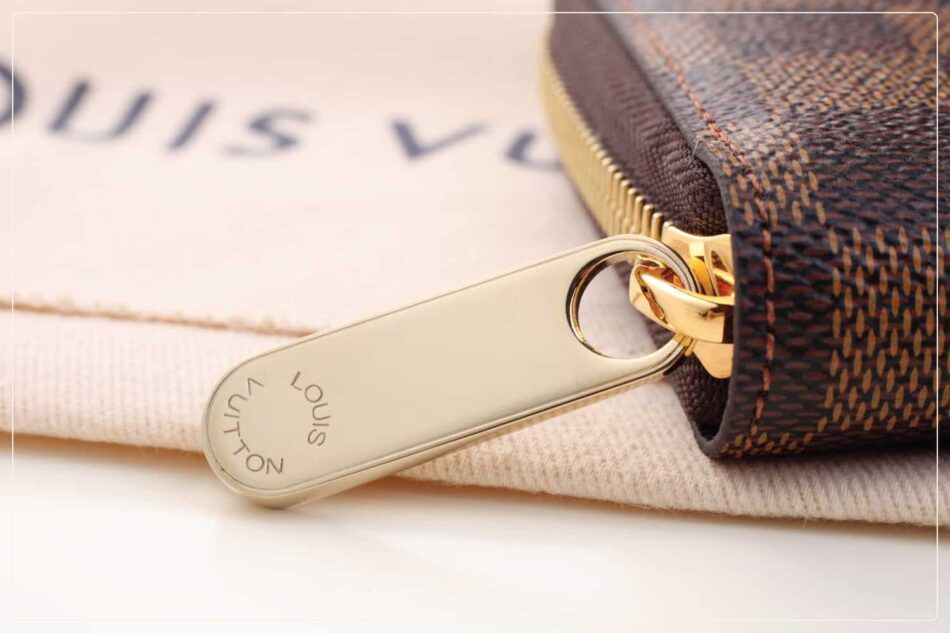
The ability to tell the difference between an authentic Louis Vuitton bag and one of those ubiquitous imposters “comes with time,” says Diane D’Amato, director of luxury at Heritage Auctions. For D’Amato, who spent years with Louis Vuitton before moving to Heritage, the learning curve was gradual. She describes “being surrounded by incredible product and touching it and feeling it and looking at it and, eventually, just knowing.”
But if at this very moment you have your eye on the prize — a classic or playful Speedy 25 Bandoulière, perhaps — it’s important to know how to identify a fake Louis Vuitton. So as Louis Vuitton’s legal team plays whack-a-mole with fraudsters across the globe, we’ve compiled an extensive list of features that will help you identify counterfeit bags as you choose the first — or the next — icon for your collection. Take a look at the visual summary below, and continue down the page for a detailed explanation of how to conduct an in-depth Louis Vuitton replica check.
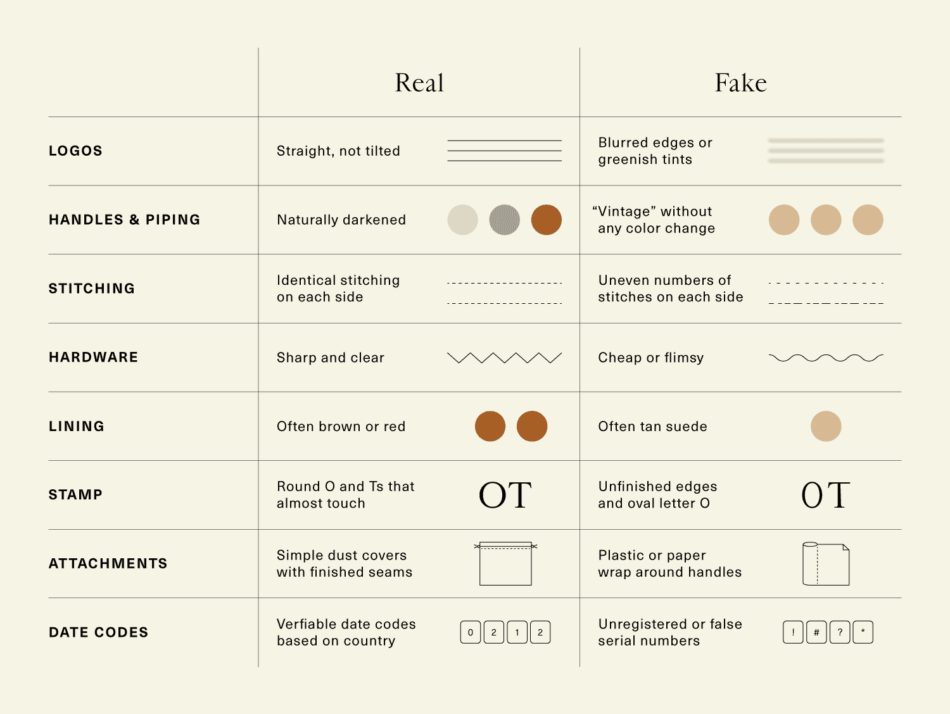
1. Look at the Logos
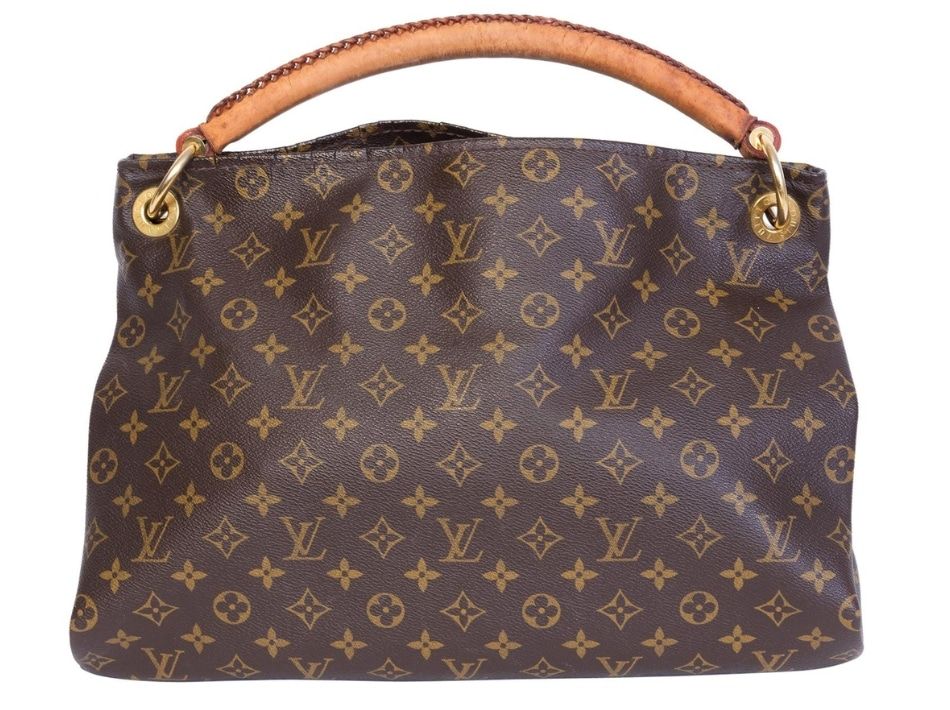
Consider the LV monogram logo. Perhaps the most recognizable feature of a Louis Vuitton bag, it was first incorporated more than a century ago in the hopes of staving off counterfeits. You can be sure that Louis Vuitton takes the greatest care with its presentation, whether it is only on the hardware of a bag or all over. There is no tilting of the interlocked LV letters nor is there smudging, blurred edges or greenish tints. “The colors may be off in counterfeits,” says D’Amato, “because they’re not going to get the saturation and the color just perfect.”
The Louis Vuitton logo might look simple enough, but this is where you can spot a fake Louis Vuitton bag quickly. On an authentic LV logo, The letter L sits lower than the V, creating a perfect overlay.
When it comes to monograms, the LV monogram should be continuous, without breaks or interruptions. It’s combined with three distinct quatrefoil designs that repeat in the same order together with the LV monogram logo across the outside of the bag. If you notice irregular spacing, interruptions or a misaligned pattern along a seam, it’s likely that the bag is a fake.
The Damier monogram is another signature Louis Vuitton logo design, also called the Damier or “checkerboard.” It’s available in multiple color combinations, like the Damier Ebene and the Damier Azur.
A more recent version of the classic monogram logo is the Monogram Vernis collection made from glossy patent calfskin leather. The logo design on these models is embossed into the bag’s outer layer.
Another important detail to know is that specific styles are made with one continuous panel of canvas or leather, such as the Speedy and Keepall. Because of this technique, the logo will be upside-down on one side. This will never occur, however, in bags made of two pieces of material connected at the base, like the Neverfull Monogram.
2. Inspect the Handles and Piping
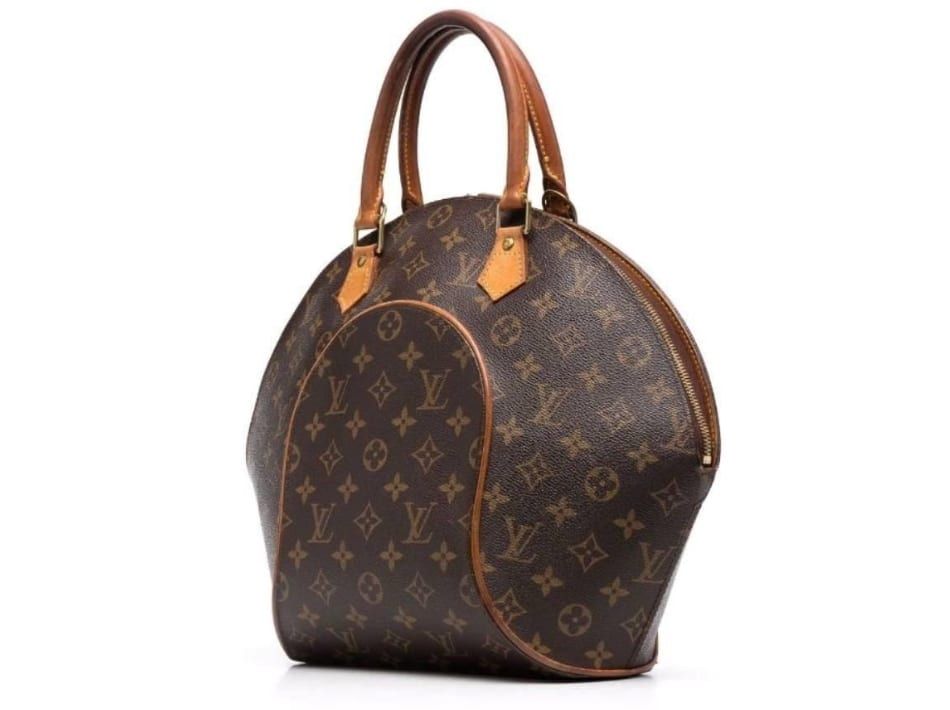
The handles and piping of Louis Vuitton handbags are constructed from vachetta leather, a natural-toned cowhide that deepens to a rich honey color with age. “As soon as they’re exposed to air, they start to change color,” D’Amato explains, “that’s how the handles darken. A non-authentic bag is not going to do that in the same way as an authentic bag.” So if you’re looking at a vintage bag with bright, natural handles, move on.
The piping is the leather trim that runs along the edges of a bag. On a real LV bag, the piping is made from the same high-quality leather as the handles and should match them exactly in color and texture.
The handles are often framed by a contrasting burgundy edge trim that, like the handles themselves, will darken over time. Check for flaws, a plastic appearance or a painted texture in the contrast trim.
Finally, check the color and the age of the bag — if you’re looking at a vintage bag with fresh, bright red piping, it’s probably a fake.
3. Expect Straight Stitching
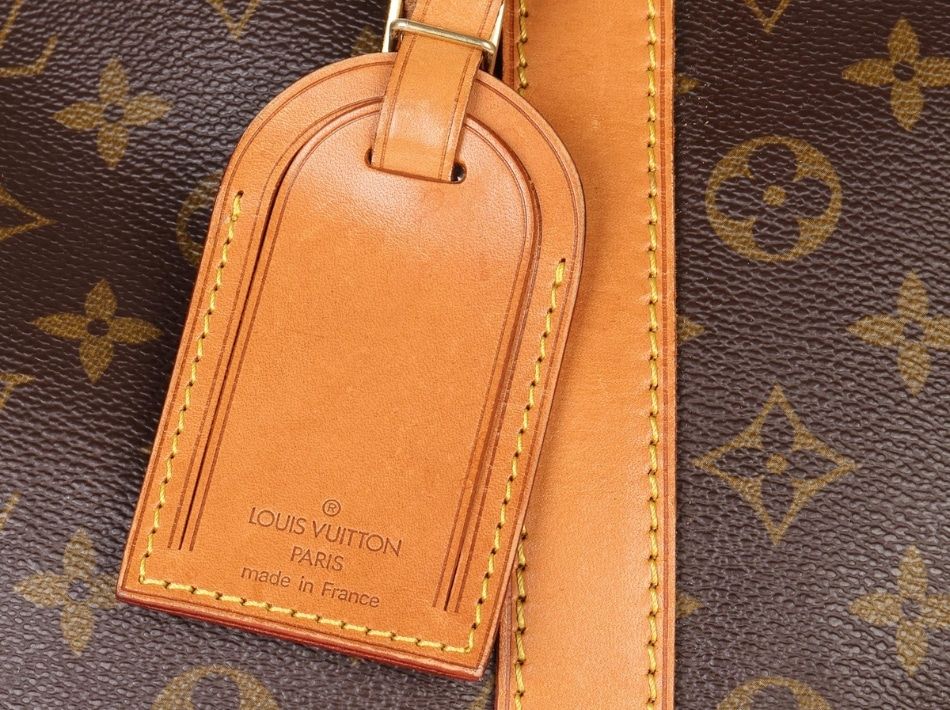
Expect perfection when it comes to the stitching on a Louis Vuitton bag — anything less won’t leave the workshop floor. The stitching on any LV bag is a good indicator of whether a bag might be a fake.
The stitches on an authentic bag are flawless — perfectly straight and even. The number of stitches will not change, so without exception, all Louis Vuitton bags should have the same number of stitches on both sides of the bag. For example, authentic Louis Vuitton Alma, Speedy and Neverfull bags have exactly five stitches across each of the tabs where the handles are secured. This is always the same — Vuitton matches the number of stitches to the location. So remember: Perfection does not deviate.
4. Scrutinize the Hardware
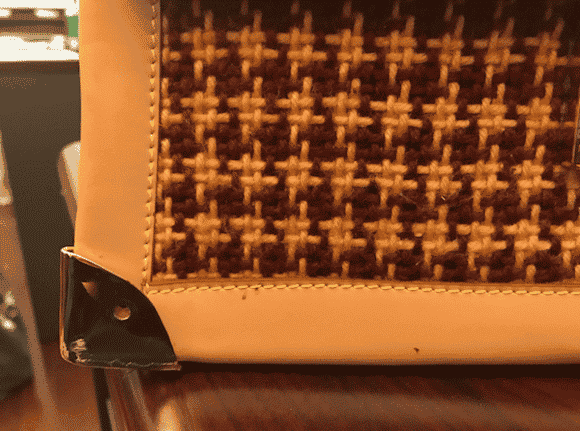
Often on a fake Louis Vuitton bag, “the hardware just looks cheaper,” says D’Amato. A real luxury bag provides a pleasure of touch that counterfeiters simply can’t reproduce. So if the hardware is rough or uneven, feels flimsy, hollow or even (gasp!) plastic, the bag is most likely a fake.
All hardware pieces on an authentic Louis Vuitton bag, from clasp to rivet, bear the brand’s engravings, crisp and clear. The metal is durable, evenly colored and will not have an overly shiny gold tone. The color of the hardware inside the bag and outside should be the same, and no piece of hardware should be faded or discolored.
Examine the LV signature monogram on the zipper pull — it should be sharp and clear. The zipper puller should match the rest of the hardware in color, have a solid weight and run smooth and easy as it opens and closes. If the zipper puller feels flimsy or it’s difficult to pull, consider it a major red flag.
Finally, Louis Vuitton’s hardware is usually in brass, golden brass or silvery metal. (Although matte finishings do exist.) Whenever possible, check louisvuitton.com to ensure that the hardware on the bag you’re considering is legit.
5. Pay Attention to the Lining
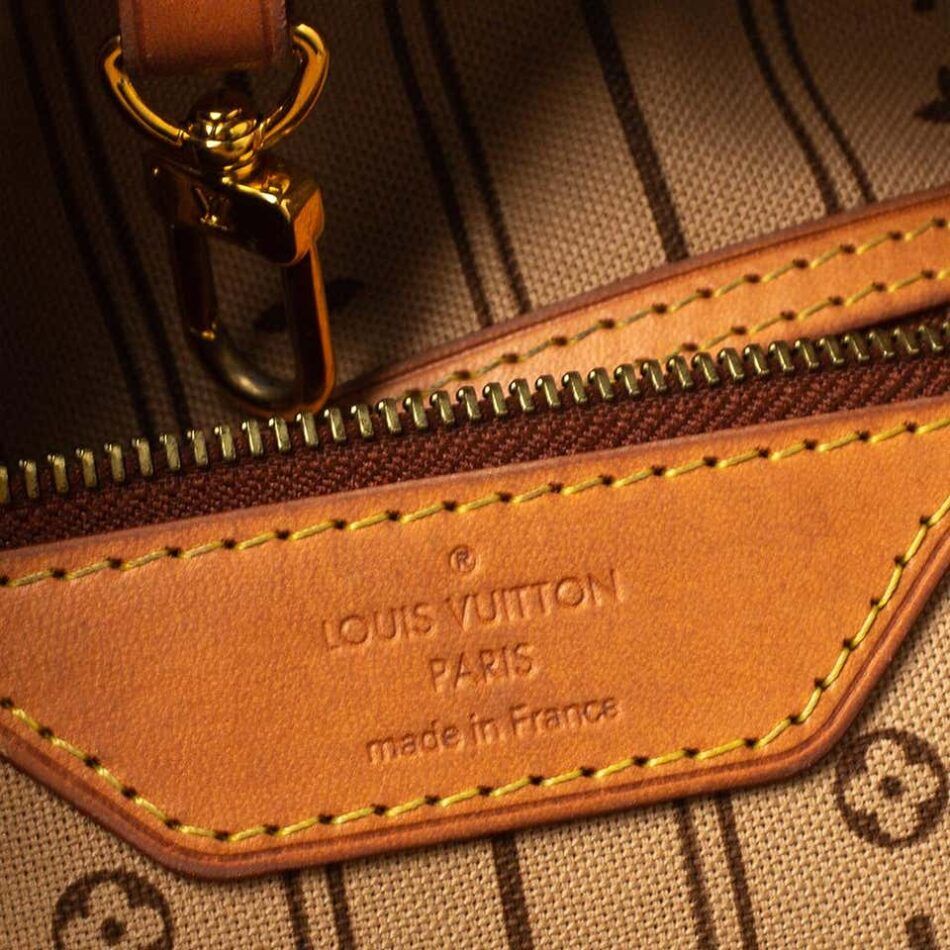
Although Louis Vuitton often uses different linings for different collections, Monogram canvas bags are generally lined in brown cotton, and Damier Ebene Canvas bags are historically lined in red microfiber. But if you’re considering a specific bag, do your research — there are a number of exceptions to this rule.
Pay attention to details that counterfeiters often overlook. Find out whether a particular lining was actually used in the year a bag was produced. For example, 2017’s Neverfull Monogram has a tan interior with thin brown stripes. You’ll want to know this if 30 years from now you find yourself considering a vintage 2017 Neverfull Monogram. Neverfull Limited Edition bags surprise with different linings, so it’s important to do research on the exact model and collection or limited edition you’ve got your eyes on.
Finally, counterfeiters seem to believe that Louis Vuitton bags look best with brown or tan suede interiors, as you’ll often see these in knockoffs. Fortunately, you’ll never see brown or tan suede lining in a real Vuitton — the company has never lined its bags with either of these materials. It’s an easy way to know if an LV bag is real.
6. Study the Stamp
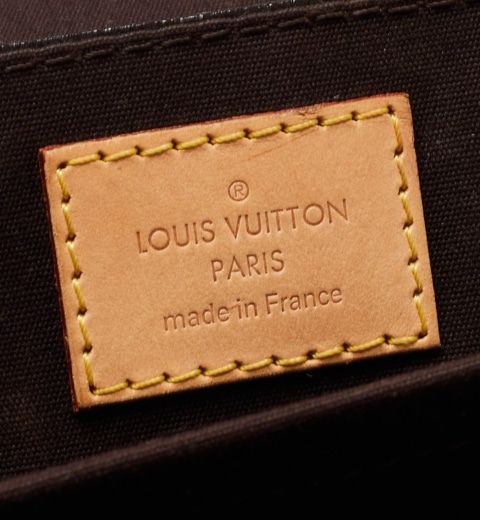
Study the font Louis Vuitton uses to stamp its bags. One of the most notable details is the wide, perfectly round O. The L has an especially short tail, and the two Ts in Vuitton almost touch. While counterfeiters have gotten better at reproducing the font, it’s still commonly awry — and this is a mistake you can easily recognize, if you’re prepared. The stitching around the stamp should be as perfect as it is throughout the bag — no loose threads, frayed ends or asymmetrical lines.
Look for the registered trademark ®, which should be perfectly centered above the V and the U in Vuitton. And don’t be thrown off if a bag is not made in France — Vuitton also manufactures its bags in Spain, Germany, Italy and even the United States.
7. Watch for Hang Tags
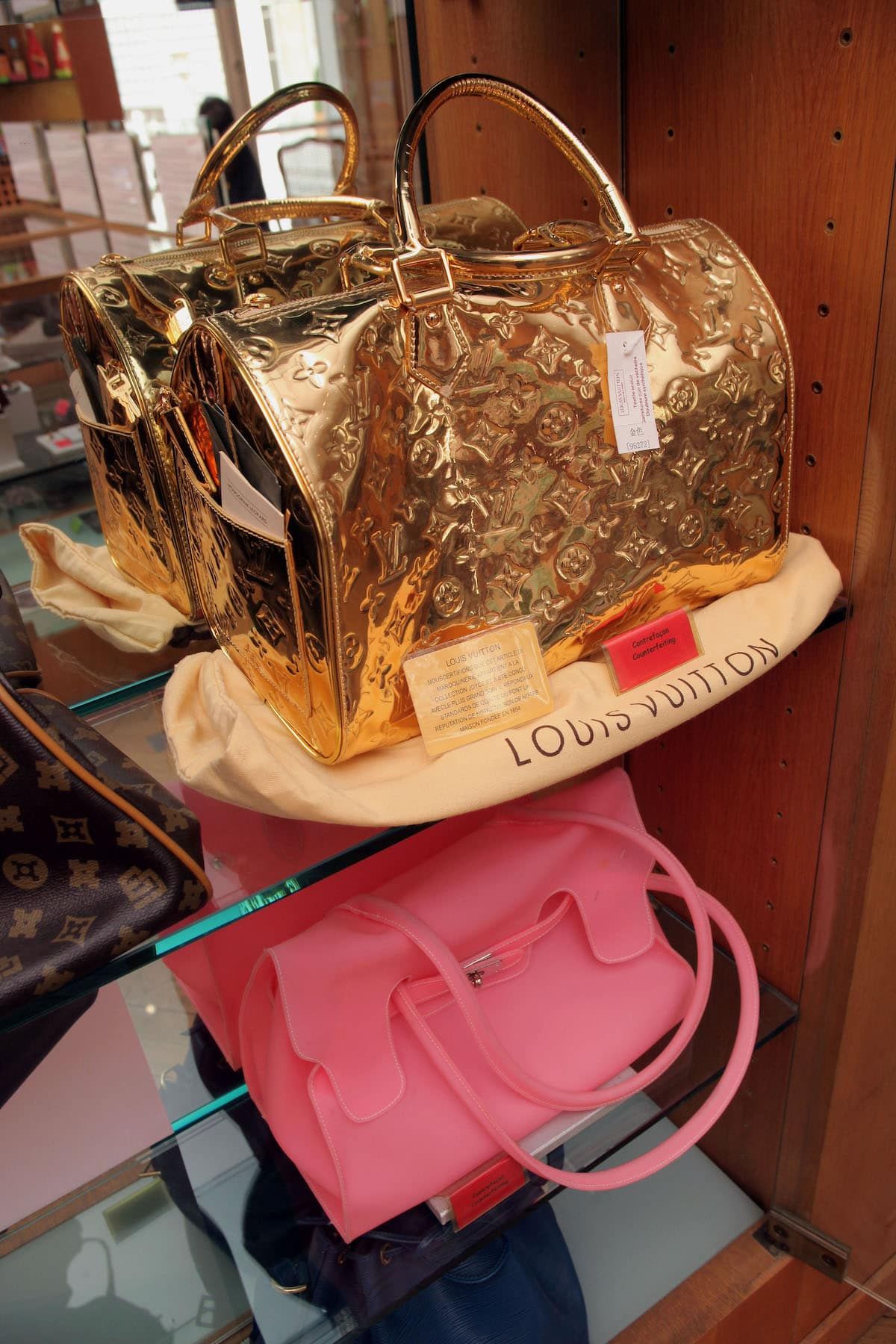
Louis Vuitton will not wrap plastic or paper around handles or hardware in order to protect them. The company will not put hang tags on bags and of course it will never, ever misspell its own name.
Louis Vuitton dust covers are simple, made of 100 percent cotton with neatly finished seams. Earlier versions are light tan with an LV logo; more recently, the name has been spelled out on a pale saffron background. No other text will appear.
And don’t be swayed by a receipt, which unfortunately proves nothing. If a bag can be copied, surely a piece of paper can, as well — and an authentic receipt can be paired with a fake bag.
8. Check the Date Codes
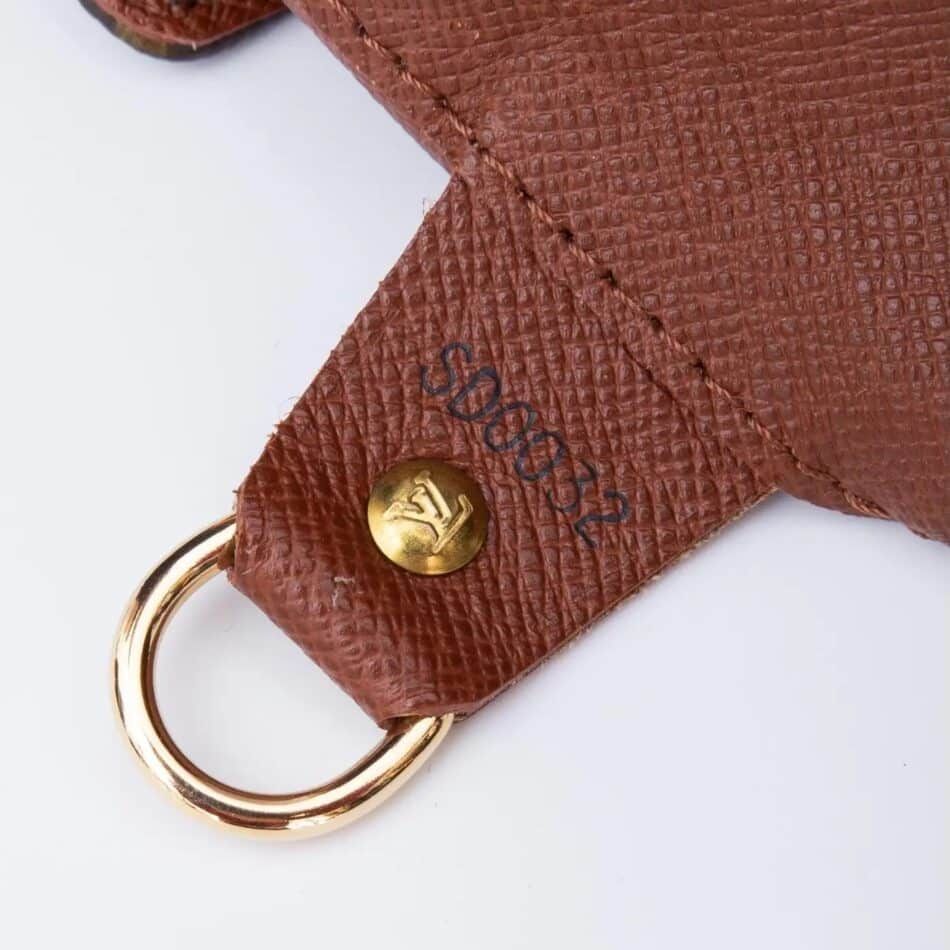
In the early 1980s, Louis Vuitton began including date codes to identify a bag’s place of origin and date of manufacture. This practice was continued until March 2021, when Vuitton switched to including a microchip into their products.
For all products made before March 2021, you can use the date code to cross check where a bag was produced. For example, if a bag is stamped, “Made in Germany,” the date code should include LP or OL, as you can see in the list below. Anything else is likely careless counterfeiting. However, even if the two do match, your search for aberrations should continue. Not all counterfeiters are sloppy.
Date codes are found inside the bag, often embossed on a tag in a side seam. They can be difficult to locate and may even wear away in older bags.
The following are examples and explanations of date codes and how they have evolved:
| Louis Vuitton Country Codes | |
|---|---|
| France | A0, A1, A2, AA, AAS, AH, AN, AR, AS, BA, BJ, BU, DR, DU, CO, CT, ET, FL, LW, MB, MI, NO, RA, RI, SD, SF, SL, SN, SP, SR, TJ, TH, TR, TS, VI, VX |
| Italy | BC, BO, CE, FO, MA, RC, RE, SA, TD |
| Spain | CA, GI, LO, LB, LM, LW |
| United States | FC, FH, FL, LA, OS, SD |
| Switzerland | DI, FA |
| Germany | LP, OL |
| Louis Vuitton Date Codes in the 1980s | |
|---|---|
+ First two numbers = year + Final number = month + Country code |
Example: 866A0 Made in France in June 1986 |
| Louis Vuitton Date Codes in 1990-2006 | |
|---|---|
+ Country code + First and third numbers = month + Second and fourth numbers = year |
Example: A00961 Made in France in June 1991 |
| Louis Vuitton Date Codes in 2007 to Present | |
|---|---|
+ Country code + First and third numbers = week of year + Second and fourth numbers = year |
Example: A02058 Made in France in the 25th week of 2008 |
Do All Louis Vuitton Bags Have a Serial Number?
All LV bags prior to March 2021 have date codes, which are a little different than serial numbers. Date codes help identify the year and country of origin of the bag.
If a bag was manufactured after March 2021, it will have an NFC tag, a type of microchip, embedded in the bag. It’s invisible to the eye and too small to feel by hand. It contains a unique identifier that can be scanned by Louis Vuitton personnel to reveal the information for each specific bag.
Some counterfeiters, especially the really good ones, will be aware of this change, so never rely on the date codes — or their absence — as the sole proof of a bag’s authenticity.
Some Final Words of Advice
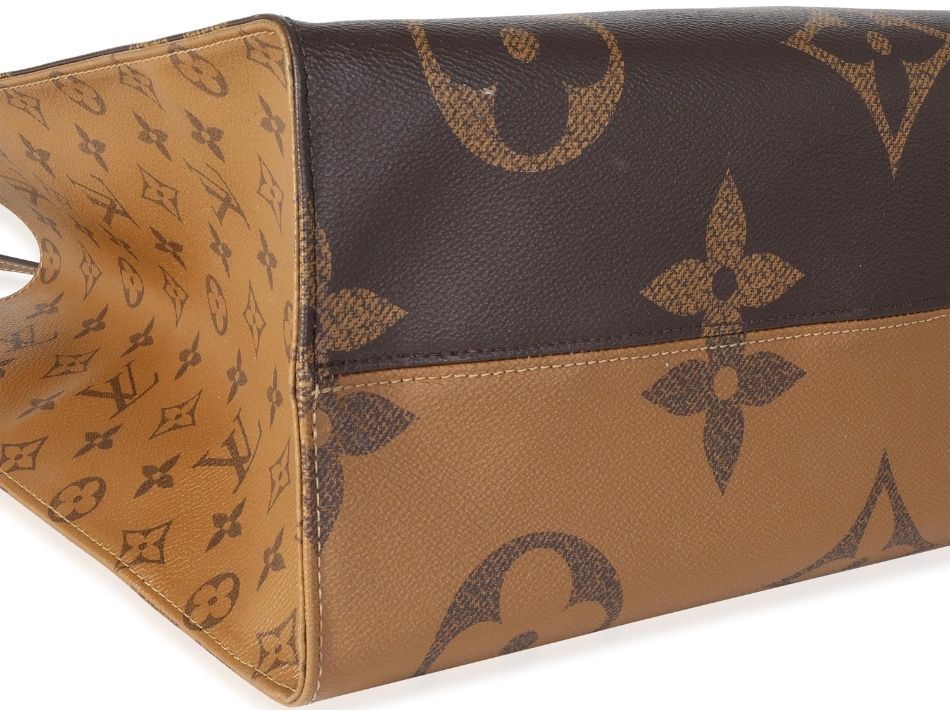
When buying a Louis Vuitton bag online, ask for pictures of the front, back and base, as well as of the lining, the date code and the embossed stamp. Be suspicious if a seller is advertising with borrowed pictures or with ones watermarked by another site. Pay attention to the seller’s reviews and ratings, which can give you important information about a seller and help you sniff out a scam before you waste your time even looking.
What Does a Real Louis Vuitton Bag Smell Like?
Use your olfactory senses to sniff out potential fakers. If you get a whiff of plastic or chemicals, it may not be the real deal. Authentic Louis Vuitton bags will smell like genuine leather — or just clean, like nothing at all.
Shopping for Louis Vuitton online is a lot like online dating — false advertising does occur, so the beauty you may be admiring might not be the same one that appears at your door. Choose reputable sites and sellers with a proven track record, and don’t be afraid to ask questions and push for answers. And, also like online dating, if something doesn’t feel right, move on.






